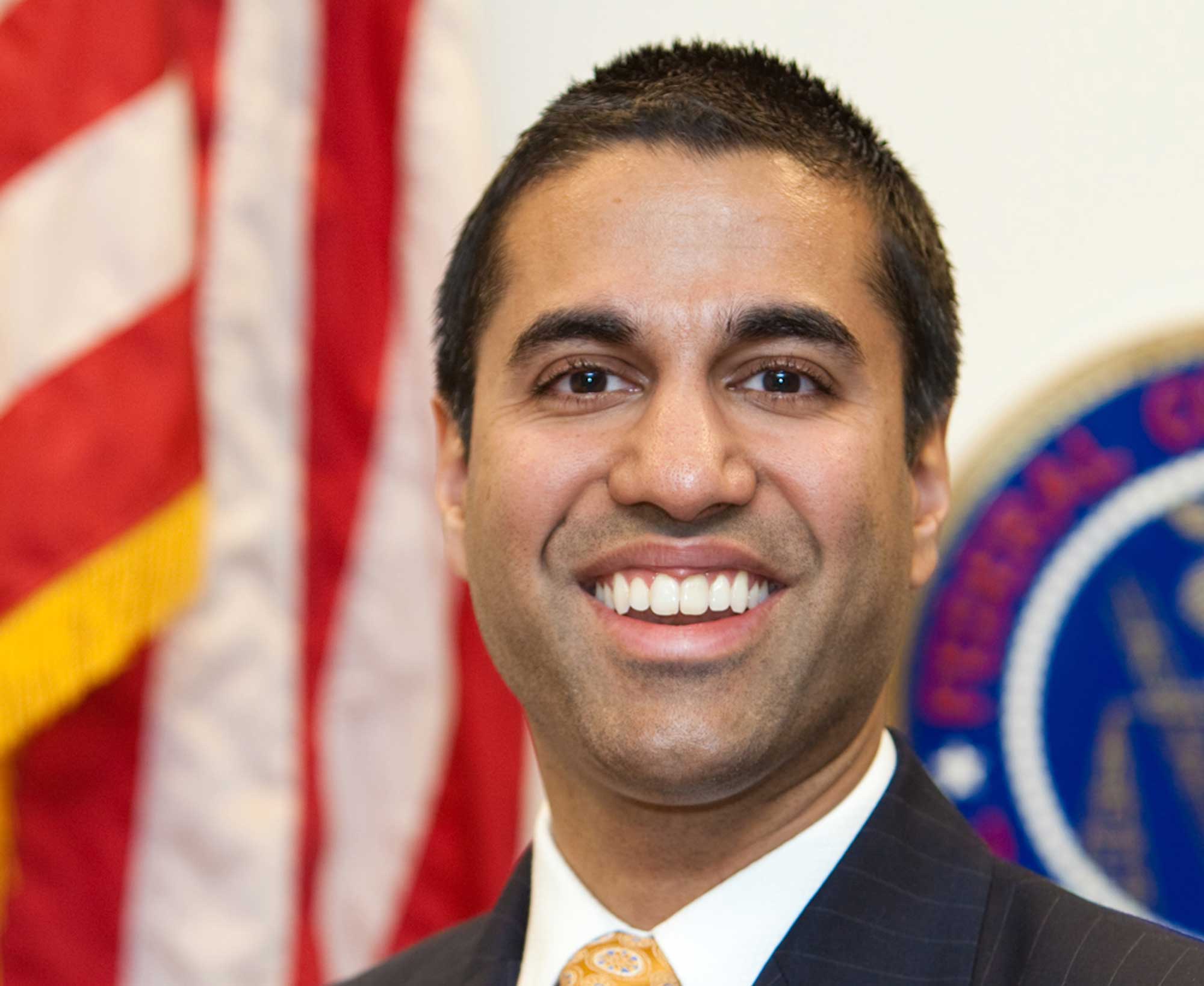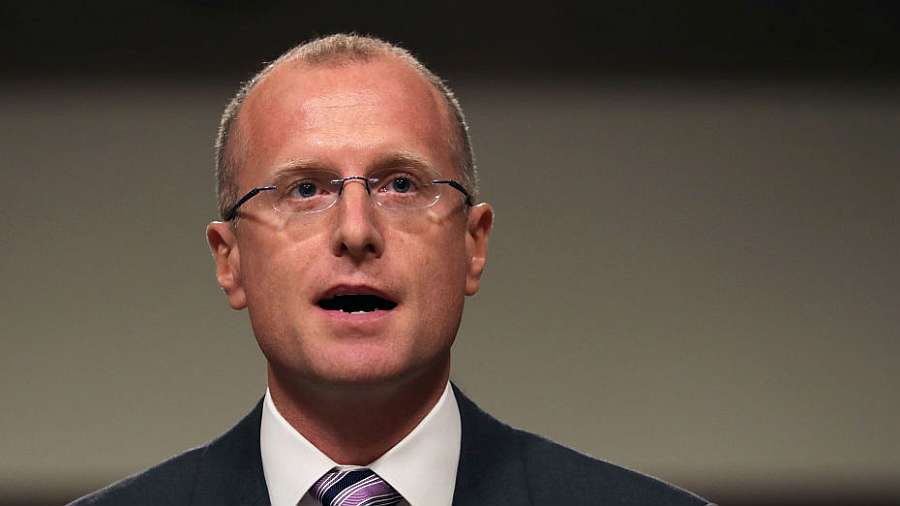Pai Advises Real Regulatory Humility on Artificial Intelligence

The smarter way to stay on top of broadcasting and cable industry. Sign up below
You are now subscribed
Your newsletter sign-up was successful
Putting the "AI" in Pai, as it were, FCC chair Ajit Pai signaled that when it comes to artificial intelligence and machine learning, the FCC was smart enough to exercise regulatory humility, particularly given that the technology could revolutionize communications, but registered concern about AI potentially perpetuating biases in decision-making.
The chairman was delivering opening remarks Friday (Nov. 30) at an inaugural FCC forum on artificial intelligence and machine learning. He was also doing double duty as moderator on a couple of panels with industry experts. The forum also featured some hands-on AI that the chairman clearly excited about.
Pai said that the forum was about "discussion and demonstration," not about the FCC "dipping its toes in the regulatory waters." He said that early government intervention in the space could foreclose innovation and that the FCC would not try to micromanage the evolution of the technology.
Related: Using AI to Learn What Viewers Want to See
Pai said that while AI--computers exhibiting behaviors that would be interpreted as intelligence--had great potential and "major ramifications" for the economy, it could "revolutionize" communications. For example, he said, "our current rules for antennas are framed in terms of maximum power. This reflects an era when radios transmitted on a fixed frequency in a fixed direction at a fixed power. But today’s radios are agile in terms of power, frequency, and even modulation. They are software-defined. And we are seeing more and more AI capabilities incorporated into these devices. We want to understand how AI can enable individual radios to make much more efficient use of spectrum—all without human intervention."
The FCC is currently relying on smart devices to allow unlicensed wireless use of the TV spectrum, and for sharing the CBRS spectrum, though the jury is still out on its applications to other bands.
He said Friday's forum would probably be the first of many FCC dives into new tech, with blockchain likely on the agenda for a future forum.
The smarter way to stay on top of broadcasting and cable industry. Sign up below
But while the FCC under Pai won't rushing in to the space, he said it was important for it to be aware of technologies on the horizon and what their impact could be on the networks they do regulate.
For example, he said AI could help bridge the digital divide by building better, smarter, communications networks.
Related: Digital Deck Is Stacked Against Quality Journalism
The other commissioners shared Pai's enthusiasm for the topic.

Republican Brendan Carr seconded the regulatory humility part, and said the FCC's role is to build out 5G networks to "unlock the innovation" of AI and machine learning.
He pointed to the transition from computing power in devices and server farms to decentralized edge networks. He said networks are getting smarter and the FCC needs to make sure infrastructure is built out to accommodate that shift.
Rosenworcel focused on the need for spectrum efficiency and network resiliency.
Something of a tech wonk, Rosenworcel's eyes lit up when she talked about the power of the combination of AI and next gen wireless networks to "remake our world."
In terms of spectrum efficiency, she said the internet of everything connections, censors feeding data to algorithms that can make "smart" choices, need gigabit speeds and sub-millimeter latency. She looked to a day when smart networks would know what spectrum is needed in any environment.
In terms of network resiliency, she said climate change--wild fires, hurricanes--have put networks under siege. Software-defined networks could build facilities that self-diagnose, self-heal, and orchestrate responses to challenges.
Adding a note of caution to the discussion was AI expert and Arizona State University professor Subbarao Kambhampati.
He said that the FCC should avoid "excessive regulatory zeal" despite warnings from folks like Elon Musk that AI could destroy humans.
But Kambhampati also said that AI was the ultimate dual-use technology, and could be used for ill as well as good. It is important to insure fairness and transparency so that AI systems don't internalize and perpetuate biases in the data that goes into decision-making.
"You have to be carefully taught," the South Pacific song about racism goes, and machine learning comes from the data that goes into the algorithm.
But Kambhampati said such bias was not necessarily nefarious. "Nobody sits down and writes a program that says 'let's be racist."
He pointed to Samsung's camera eye-blink warning technology, which was based on U.S. data and wound up signaling Japanese and Korean users were constantly blinking when that was not the case. Obviously Samsung, a Korean company, was not trying to insult Asians.The second big issue is the spoofing of identities and voices, including new pernicious robocalls, that are possible with AI. "We believe what we see [or hear]," he said.
He said the FCC should support "good users" and democratization of the technology. Big companies have a big advantage in a world of big data, he suggested, and their good behavior can't be counted on.
Pai said that if AI is perpetuating biases, then there was clearly a problem. Pai sought input on whether his desire for a hands-off approach was appropriate or should it take a more active role.
Insuring data has some kind of certifiable diversity is "reasonable" for the government "to look into," he said, to insure there is democratization of access.
Contributing editor John Eggerton has been an editor and/or writer on media regulation, legislation and policy for over four decades, including covering the FCC, FTC, Congress, the major media trade associations, and the federal courts. In addition to Multichannel News and Broadcasting + Cable, his work has appeared in Radio World, TV Technology, TV Fax, This Week in Consumer Electronics, Variety and the Encyclopedia Britannica.

